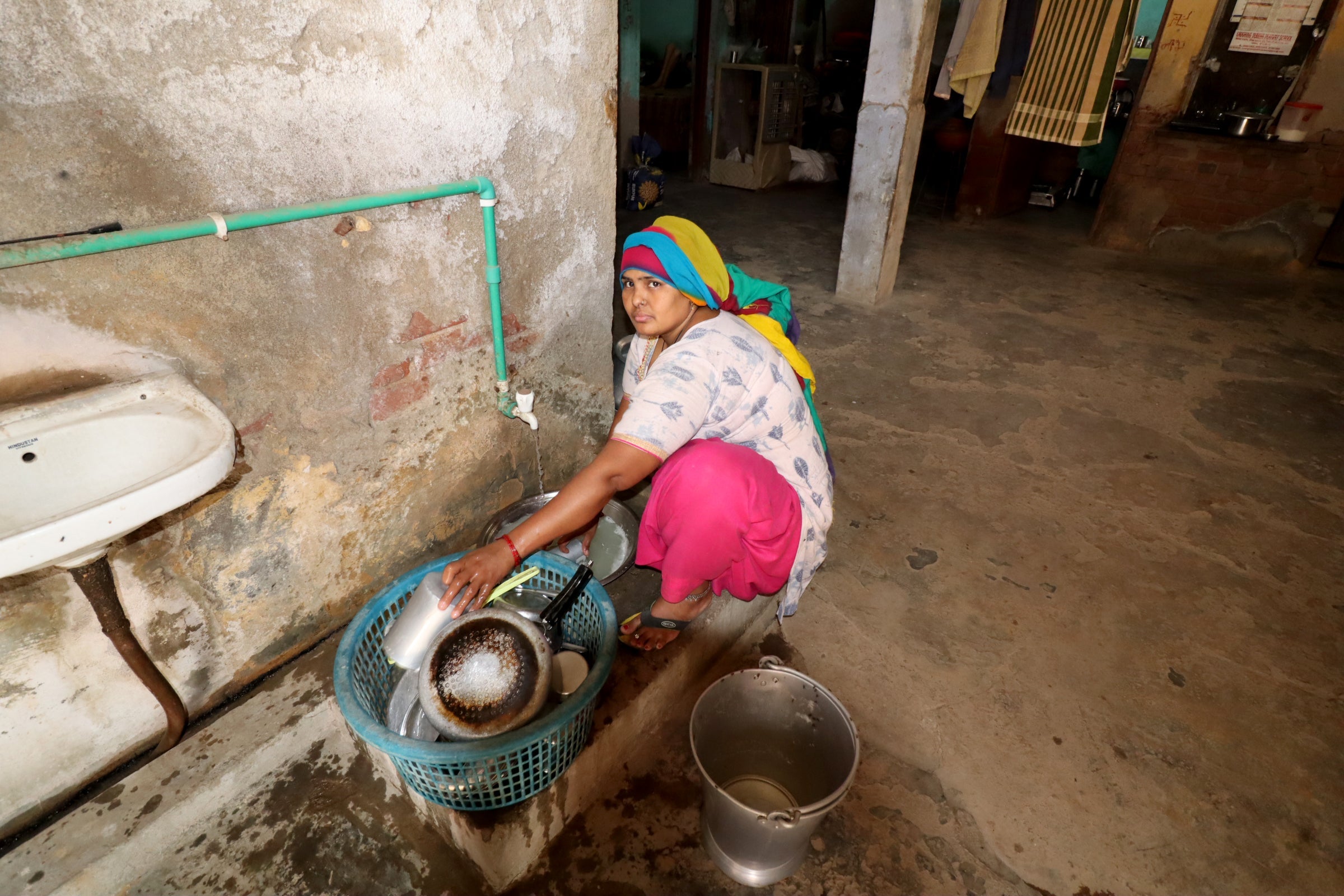Majority of Indian domestic workers ‘work seven days a week with no annual leave’
Exclusive: Survey spanning four years of research on unprecedented scale finds 99% of workers had ‘oral’ contracts with vast majority from lowest class of India’s caste system, reports Mayank Aggarwal in Delhi


The largest survey of domestic workers in India ever conducted has provided unprecedented insights into the working conditions of one of the country’s most downtrodden sectors.
The survey reveals that across six northeastern Indian states, a large majority of maids, cooks and other domestic staff worked seven days a week and were not given a single day of annual leave without having their pay docked.
Spanning four years of field research and surveys with 12,000 domestic workers, a report seen first by The Independent represents not just the largest single study of the sector in India, but indeed anywhere in the world.
It has been produced using research conducted by a network of Catholic nuns, from the Centre for Development Initiatives (CDI), across six northeast Indian states – Assam, Manipur, Meghalaya, Mizoram, Tripura and Nagaland.
It found that nearly all the workers surveyed – 99 per cent – had only “oral contracts” of employment, and an estimated 74 per cent had “no access to medical services”.
The survey shows that domestic workers are overwhelmingly (99 per cent) female and typically young and married, with at least one child to support.
According to the estimates of the Indian government, there are 4.2 million domestic workers in India, while the International Labour Organisation (ILO) notes that the real figure is likely higher.
The survey also found out that 85 per cent of the workers were from the most marginalised social groups in India’s caste hierarchy, including those who belong to scheduled (lower) castes and the Dalit (formerly Untouchable) community.
Dr V A Ramesh Nathan, general secretary of the National Dalit Movement for Justice (NDMJ), told The Independent that the survey reveals a set of findings that are widely known but never given attention in India, never mind internationally.
“It reveals the feudal mindset of Indian society, where people of the Dalit community are made to work like slaves. This is not the story of six northeastern states alone, but of the whole of India,” said Dr Nathan.
“The lowest strata of the society, especially the women, are the biggest victims of it. It has been a long pending demand – for decades – to recognise their rights and bring them under social schemes, but it is yet to be implemented.”
According to the survey, 82 per cent of the workers were engaged in cleaning tasks while 80 per cent were involved in washing and about 51 per cent in cooking and kitchen work.
“The main drivers [for taking on domestic work] include supporting the household and paying for education,” said the survey, while noting that 74 per cent of the workers themselves had dropped out of school.
The report recommended a set of policy measures, which were agreed by the UK-based team from the Rights Lab at the University of Nottingham that authored the report, and the CDI team that gathered the data. It was commissioned by the anti-slavery charity Arise.
It recommended formal registration of domestic workers – currently they are not seen as having employment in the system – saying all states should “open their registration provision to domestic workers and provide labour cards”. The report said their lack of recognition under labour laws leave domestic workers with no legal protection.
The survey also suggested that India ratifies a recommendation of the International Labour Organisation adopted in 2011 that aims at improving the working and living conditions of tens of millions of domestic workers worldwide. This would help in recognising the economic and social value, rights and dignity of domestic workers, it said.
It recommended the constitution of a “functional welfare board for domestic workers to implement the minimum wage in practice”.
And it urged the authorities in India to establish provisions for the welfare of domestic workers through social security schemes including pensions, maternity benefits, medical claims and educational support for children.



Join our commenting forum
Join thought-provoking conversations, follow other Independent readers and see their replies
Comments